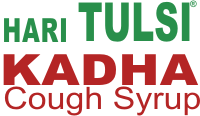|
Vasa.................................................................................400
mg
Haridra...............................................................................50
mg
Kantakari.........................................................................200
mg
Somavalli...........................................................................50
mg
Yastimadhu.....................................................................250
mg
Tulsi..................................................................................100
mg
Bibhitak...............................................................................50
mg
Virshya................................................................................50
mg
Bharangi...........................................................................100
mg
Trikatu..................................................................................90
mg
Saubhagya
Pushpa..........................................................50
mg
Pudina
Satva......................................................................10
mg
Indications :
Useful in
cough, cold, Asthma & upper respiratory track infections.
Description:
HARI TULSI KADHA is a combination of herbs acting on the
respiratory tract and rectifying the abnormalities of the
digestive system, since impairment of the digestive system is
considered to be responsible for various types of cough.
Several herbs like the leaves of the vasa plant contain the
alkaloid vasicine (C11H12N2O), which is responsible for the
small but persistent bronchodilatation, and an essential oil
which is chiefly responsible for the expectorant action. The
leaves and roots contain other alkaloids, vasicinone,
vasicinolone and vasicol, which may contribute to the
bronchodilatory effect through anticholinergic action on the
vagal innervation of the bronchii. The bronchodilation effect is
considerably increased after atropine administration. Studies
have also shown vasa to be effective in the treatment of
amlapitta (dyspepsia) and pyorrhea. The in vitro growth of
several strains of Mycoplasma tuberculosis was inhibited by the
essential oil at concentrations in the range of 2-20 ug/ml.There
has also been a report of thrombopoetic (platelet-increasing)
activity with vasicine.
Kantkari (Solanum Xantho-carpum) is one of the members of the
dasamula (ten root) of the Ayurveda. It is a very spiny diffuse
herb up to 1.2 m tall, commonly found throughout India. The
juice of berries is used in sore throat. Roots and seeds are
administered as an expectorant in asthma and cough and pain in
chest. Stem flowers and fruits are bitter and carminative and
are prescribed for relief in burning sensation in the feet.
Leaves are applied locally to relieve pain.
Yastimadhu is useful for many
respiratory disorders as well as cough. Yastimadhu helps to
increase the appetite by facilitating proper evacuation of
stools. This herb has a special action on kapha, which helps in
expectoration of the accumulated kapha.It is mainly used as an
expectorant and antitussive agent. It has shown
anti-inflammatory activity. De-glycorrhiza liquorice extract is
now are important substance for treatment of gastric and
duodenal ulcers.
A strong decoction makes a good laxative for children and may
also help to reduce fever. Add licorice to other medicines to
make them more palatable.
'Tulsi'
(basil) has a positive effect over blood pressure and also a
de-toxicant, its regular use prevents heart attacks.
|




